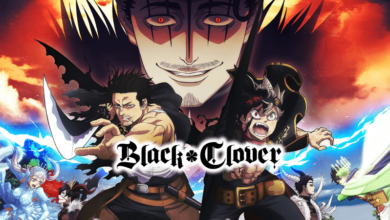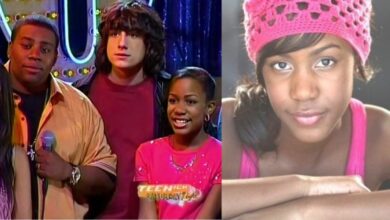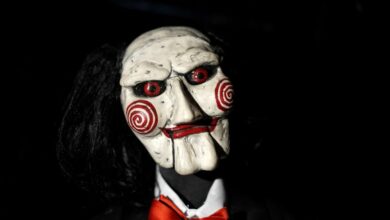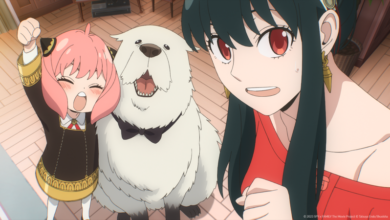The Wizard of the Kremlin: The new film about how Putin’s Russia was born
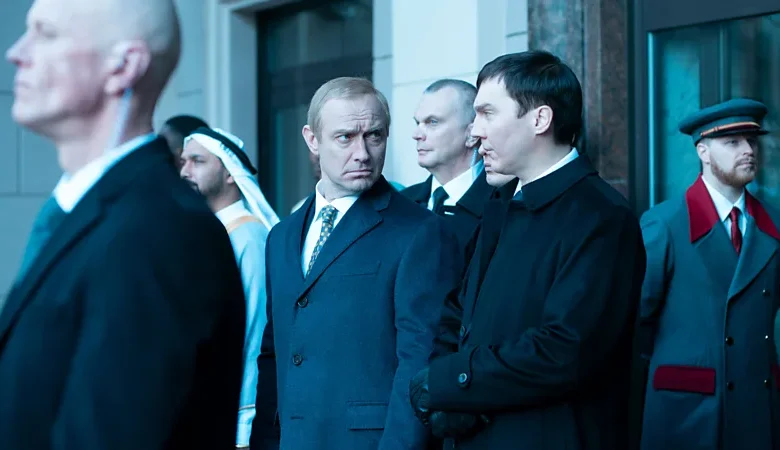
Featuring a much-anticipated performance by Jude Law as Vladimir Putin, this new drama looks to explore how the Russian president came to power – and presents him as mild-mannered.
Olivier Assayas’s new drama The Wizard of the Kremlin, which has just premiered at the Venice Film Festival, features Jude Law as the Russian president, Vladimir Putin. But the film may disappoint anyone expecting they might see Law rage and threaten his underlings as he did when he played another real-life ruler, Henry VIII, in 2023’s Firebrand. His Putin (who speaks English dialogue with an English accent) is a calm, mild-mannered figure, and he isn’t even the film’s main character. But The Wizard of the Kremlin does offer an intriguingly plausible interpretation of how Putin’s Russia came to be after the dissolution of the USSR.
Adapted from Giuliano da Empoli’s bestselling 2022 novel of the same name, the film focuses on the soft-spoken Vadim Baranov (Paul Dano), a fictional character inspired by a real Russian politician, Vladislav Surkov, who was Putin’s personal advisor for several years. To make another Henry VIII reference, The Wizard of the Kremlin is comparable to Hilary Mantel’s Wolf Hall novels, in that it’s about the quietly wily strategist behind the throne rather than the monarch sitting on it.
The film is worth watching if you want to gain some insight into how Putin came to power, and how that power has been maintained
Baranov explains to a visiting US academic (Jeffrey Wright) that he was a student in the early 1990s when communism had collapsed and Moscow was abuzz with young people enjoying the new freedoms they believed they would never lose. He wanted to be an actor and theatre director, but soon decided that he could be more influential as a television executive, feeding the populace trashy game shows.
It’s while he is doing this job that he is recruited by Boris Berezovsky (a real business oligarch, played here by a British actor, Will Keen) to help him with the re-election campaign of the ageing president, Boris Yeltsin: one trick is to strap Yeltsin to his chair so that he sits upright rather than slumping forward onto his desk, and then to dub excerpts from his old speeches over his current slurring words. Both Berezovsky and Baranov appreciate that, in politics, appearances can mean more than reality.
Yeltsin is re-elected, but Berezovsky knows that the president’s time is almost up – and so is his money-oriented regime. Capitalism has turned Russia into a supermarket, Berezovsky argues, whereas its citizens crave the fiefdom they once knew. And they don’t want to be led by another politician spouting statistics, they want someone who seems tough and direct. The person Berezovsky has in mind for prime minister, and then president, is a straight-talking civil servant named Vladimir Vladimirovich Putin. “He’s no rocket scientist, but he’ll do just fine for now,” says the oligarch.
Berezovsky’s mistake, it is suggested, is to believe that Putin will still want his advice once he is in charge. In fact, Russians favour aggressive “strong men” over flashy businessmen: Berezovsky is soon exiled from the Kremlin, and then from the country. Baranov, on the other hand, is shrewd enough to deliver what his new boss wants, mostly by drawing on his theatre and television experience.
The character’s doctrine is that it’s appearances that count, so manipulate the look of things according to what ordinary people want. Stage public events that are gaudy and kitsch rather than dignified, so as to appeal to the biggest possible audience. Allow certain of your loudest opponents to be heard, because their antics will only boost your own standing. Steal the anti-establishment language of those who protest against you, and teach it to those who favour you: that way, supporting you will come to seem rebellious. Don’t bother to spread pro-Russian propaganda online; simply use the internet to spread enough confusion and distraction that people lose sight of what’s real. And if a television station criticises you, take over that station.
Like its main character, The Wizard of the Kremlin is measured and methodical, so it is unlikely to be a big hit: Baranov might remark that it isn’t gaudy and kitsch enough. But, fictionalised though it might be, it is worth watching if you want to gain some insight into how Putin came to power, and how that power has been maintained. It might help viewers understand the tactics being used in other countries, too. The film details how 21st-Century populism was developed. It isn’t just about the birth of today’s Russia, Assayas said in a Variety interview last week, but the birth of today’s world.

